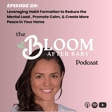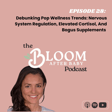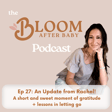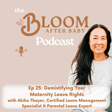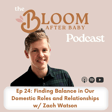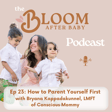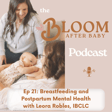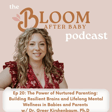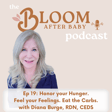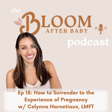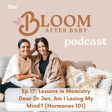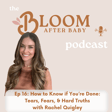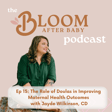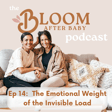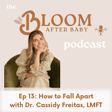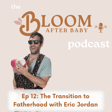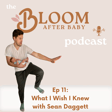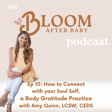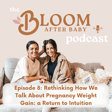
From Prenatal Depression to Popular Pregnancy Podcast Host with Laila from the Learning to Mom Podcast
This week on the @bloomafterbaby podcast we’re joined by fellow podcast host Laila from the wildly popular @learningtomom.podcast. Laila shares with us her personal journey through a difficult pregnancy and challenges with prenatal depression, motivating her to create a pregnancy and birth-focused podcast as a way to educate and inspire women who may be struggling in pregnancy themselves.
In this episode we’ll discuss:
- Symptoms of Depression in Pregnancy
- Risk Factors and the Importance of Support
- Practical Tips for Managing Prenatal Depression
- Navigating the Digital Landscape of Motherhood
- Understanding Medication and Mental Health
- The Power of Social Support in Motherhood
- Addressing Misconceptions and Embracing Motherhood
- How to know if youre ready to be mother (spoiler - you are!)
Here are some helpful resources mentioned in this episode:
How to Connect with Laila:
Her instagram HERE
Her website HERE
Screening tools for perinatal depression
Follow along with Bloom After Baby for all things maternal mental health: Instagram @bloomafterbaby and website bloomafterbaby.com
** Don't forget to leave a rating and review if you enjoy this Podcast! Thank you so much! 🥰 **
This podcast does not contain medical advice and is for entertainment purposes only.
_______________________________________________________________________
Bloom After Baby, pregnancy mental health, motherhood challenges, unplanned pregnancy, motherhood wellness, Learning to Mom podcast, postpartum depression, mental health struggles during pregnancy, depression in pregnancy, mood changes in motherhood, symptoms of depression during pregnancy, seeking help for depression
